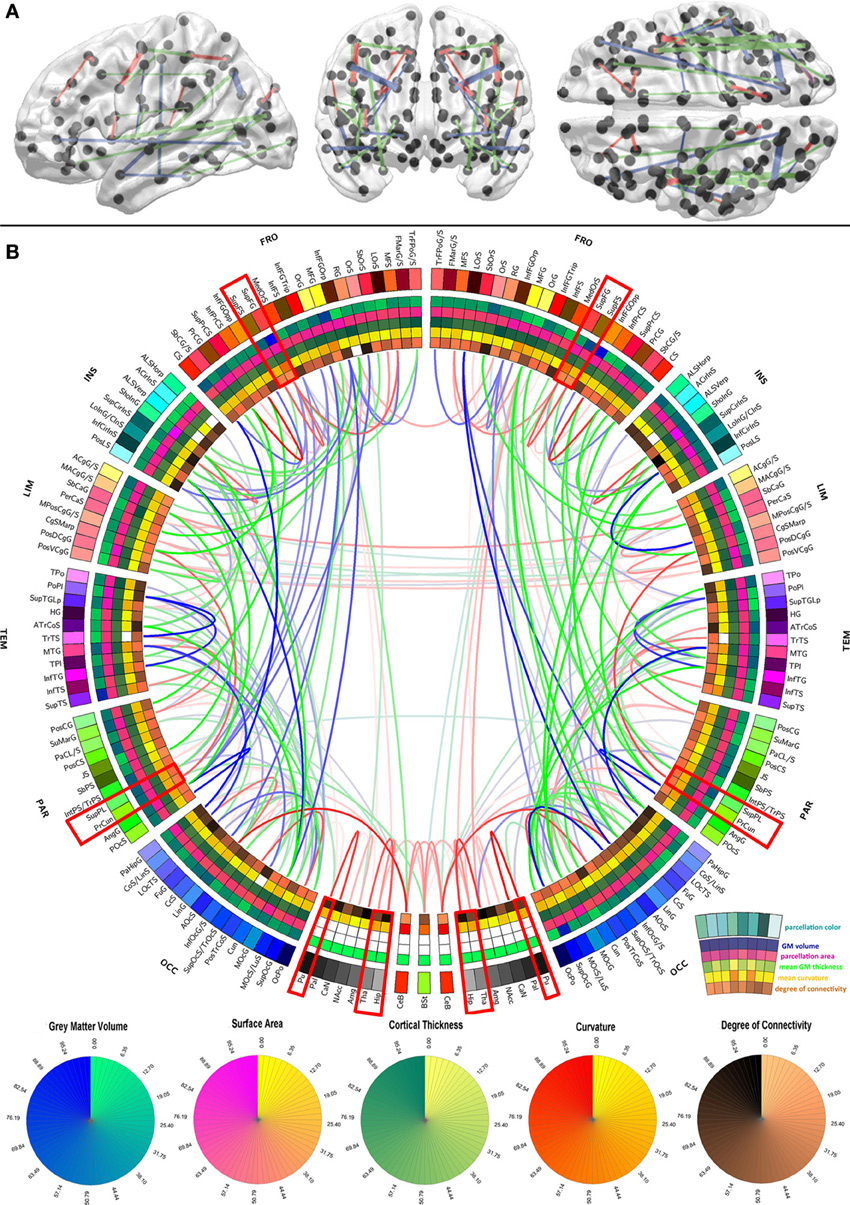First map of core white-matter connections of human brain developed at USC
May help better address clinical challenges such as traumatic brain injury
February 12, 2014
[+]

Graphical representation of the human-brain connectivity scaffold. Standard 3D graphs (A) and a connectogram (B) are used to visualize white-matter connections whose removal leads to significant changes in network integration and segregation. Only connections with this property are represented. (Credit: USC Institute for Neuroimaging and Informatics)
USC neuroscientists have systematically created the first map of the core white-matter “scaffold” (connections) of the human brain — the critical communications network that supports brain function.
Their work, published Feb. 11 in the open-access journalFrontiers in Human Neuroscience, has major implications for understanding brain injury and disease, the researchers say.
By detailing the connections that have the greatest influence over all other connections, the researchers offer a landmark first map of core white matter pathways and also show which connections may be most vulnerable to damage.
“We coined the term white matter ‘scaffold’ because this network defines the information architecture which supports brain function,” said senior author John Darrell Van Horn of theUSC Institute for Neuroimaging and Informatics and the Laboratory of Neuro Imaging.
“While all connections in the brain have their importance, there are particular links which are the major players,” Van Horn said.
Using MRI data from a large sample of 110 individuals, lead author Andrei Irimia, also of the USC Institute for Neuroimaging and Informatics, and Van Horn systematically simulated the effects of damaging each white matter pathway./.../
No comments:
Post a Comment